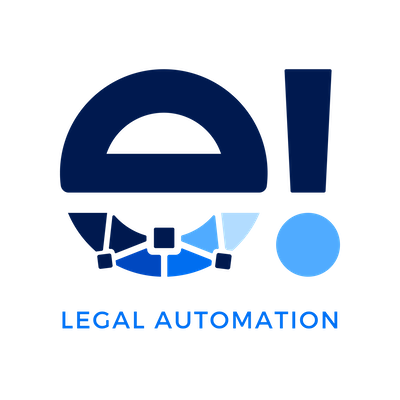The legal industry is undergoing a remarkable transformation, largely driven by the rapid evolution of technology and freelance work is gaining popularity among lawyers. Traditionally, the legal field has been perceived as resistant to change, with heavy reliance on conventional methods of practice. However, the advent of legal technology is reshaping this landscape, introducing efficiencies and innovations that were once thought impossible.
Moreover, the rise of LegalTech has catalyzed a significant shift in the skills demanded from legal professionals. Where once the focus was solely on legal expertise and procedural knowledge, there is now an increasing demand for lawyers equipped with tech and AI skills. This evolution is not just about using technology to automate mundane tasks; it’s about leveraging AI to enhance decision-making, predict legal outcomes, and provide more accurate and efficient client services.
In response to these shifts, law firms and attorneys are turning to innovative practice models. These models prioritize flexibility, efficiency, and freedom from the traditional, office-bound workday. This, combined with the broader changes in the legal industry, has made the profession more welcoming to freelance attorneys, leading to their significant rise.
The Evolving Legal Landscape
Legal tech is revolutionizing the industry, making it easier for lawyers to work remotely, manage documents, and collaborate. Cloud-based platforms and specialized software are freeing lawyers from the confines of the traditional office. This allows them to operate independently and remotely.
Law firms and departments are also embracing outsourcing and collaboration. They leverage freelance lawyers’ expertise for specific tasks, making projects more efficient and cost-effective. This approach recognizes the value and flexibility that freelance attorneys bring to the modern legal world.
On the other hand, Legal tech is revolutionizing the industry, making it easier for lawyers to work remotely, manage documents, and collaborate. Cloud-based platforms and specialized software are freeing lawyers from the confines of the traditional office. This allows them to operate independently and remotely.
Law firms and departments are also embracing outsourcing and collaboration. They leverage freelance lawyers’ expertise for specific tasks, making projects more efficient and cost-effective. This approach recognizes the value and flexibility that freelance attorneys bring to the modern legal world.
Freelance attorneys offer law firms a cost-effective way to access specialized skills. They can be brought in for specific projects or busy periods without the need to hire full-time staff. This keeps overhead costs down and is a great option for handling temporary spikes in workload.
Moreover, hybrid models that blend freelance work with traditional law firm roles are gaining popularity. This set up allows lawyers to enjoy the security of a steady position while also having the flexibility to take on freelance projects for extra income or specialized work. Essentially, hybrid models let legal professionals diversify their experience and earnings by working part-time for a firm or organization alongside freelance gigs.

Gearing Up for the Future: AI and Tech Skills for Freelance Lawyers
The legal landscape is shifting, and aspiring lawyers who want to thrive in the freelance market need to be equipped with the right tools. AI and technology are rapidly changing the industry, and lawyers who embrace these advancements will have a significant edge. Here’s how aspiring freelancers can develop the necessary skills:
- Online Courses and Certifications: Numerous online platforms offer courses and certifications in legal technology. These programs cover areas like eDiscovery, contract automation, legal research AI, and cybersecurity. Platforms like Coursera, edX, and Udemy offer courses specifically tailored for lawyers, allowing them to learn at their own pace.
- Focus on Specific LegalTech Areas: Specializing in a particular facet of LegalTech can be highly beneficial. Aspiring freelancers could focus on areas like legal document automation using platforms like DocuSign or Lex Machina, or develop expertise in legal research databases powered by AI, such as Westlaw. This targeted approach allows them to market themselves as specialists, attracting clients with specific needs.
- Practical Experience: Building a portfolio of practical experience is crucial. Aspiring freelancers can volunteer their skills with legal aid organizations or participate in online hackathons focused on LegalTech solutions. Additionally, some law firms offer freelance opportunities that allow them to gain practical experience while working on real-world projects.
By actively developing their AI and tech skills, aspiring lawyers position themselves for success in the freelance market. Understanding and utilizing these tools will not only improve their efficiency and productivity but also open doors to exciting new opportunities in the evolving legal landscape.
Building Your Dream: A Guide to Thriving as a Freelance Lawyer
The allure of a freelance legal career—flexibility, autonomy, and control over your workload—is undeniable. But like any venture, success requires careful planning and execution. Here’s how aspiring lawyers can transition from apprenticeships to flourishing freelance practices:
Finding Your Niche & Building a Client Base:
- Leverage Existing Networks: Don’t underestimate the power of your apprenticeship connections. Inform former colleagues and supervisors of your freelance transition and seek referrals.
- Target the Right Platforms: Online legal marketplaces like Upwork or Law trades connect lawyers with clients. Focus on platforms catering to your chosen legal area of expertise.
- Content is King: Develop a strong online presence. Create informative blog posts or social media content related to your legal niche. Showcase your expertise and attract potential clients organically.
Setting Rates & Managing Finances:
- Research Market Rates: Investigate typical freelance attorney rates within your practice area and geographic location. Consider your experience and offered services when setting your hourly or project-based fees.
- Clear Fee Agreements: Establish transparent fee structures upfront with clients. This avoids misunderstandings and ensures you receive proper compensation for your work.
- Time Management is Key: Freelancing demands strong time management skills. Invest in project management tools and utilize time-tracking software to maximize your efficiency and billable hours.
Client Relationships & Work-Life Balance:
- Overdeliver & Communicate Effectively: Providing excellent client service is paramount. Maintain clear and consistent communication, keep deadlines, and be proactive in managing client expectations. Positive word-of-mouth from satisfied clients is your best marketing tool.
- Boundaries are Essential: Set firm boundaries between work and personal life. Schedule dedicated work hours and resist the temptation to be “always on.” Utilize downtime to recharge and avoid burnout.
- Invest in Yourself: Carve out time for continuous learning. Keep abreast of legal updates, emerging technologies, and industry trends. This ensures you offer clients the highest quality service while staying competitive in the evolving market.
By strategically building your network, establishing yourself as an authority, and prioritizing both client satisfaction and your well-being, you can transform your freelance legal career into a thriving and sustainable practice.

The Freelance Hustle: Challenges Faced by Solo Lawyers
The freedom and flexibility of freelance law come with a unique set of challenges. Aspiring solo practitioners should be aware of these hurdles before taking the plunge:
- Income Inconsistency: Freelance work can be feast or famine. Unlike a traditional law firm salary, income fluctuates based on finding and securing clients. This necessitates strong financial planning and a safety net to weather periods with lower workloads ([invalid URL removed] a-solo-practice/)
- Client Acquisition & Marketing: Finding clients can be time-consuming, especially in a competitive marketplace. Freelancers need to develop strong marketing skills to build an online presence, network effectively, and stand out from the crowd.
- Benefits & Administrative Burdens: Solo lawyers lack the benefits packages often provided by law firms, including health insurance and retirement plans. They are also responsible for managing their own taxes, bookkeeping, and administrative tasks, which can eat into valuable work time.
- Isolation & Work-Life Balance: Freelancing can be isolating, lacking the camaraderie of a typical law firm environment. Striking a healthy work-life balance requires self-discipline and boundaries to avoid burnout.
These challenges shouldn’t deter aspiring freelancers but rather encourage them to develop strategies for mitigation. Building a diverse client base, honing business development skills, and utilizing technology to streamline administrative tasks can all contribute to a successful and fulfilling freelance legal career.
Final Thoughts
The legal world is undergoing a transformation driven by technology and AI. This shift has not only changed how law is practiced but has also given rise to a new type of lawyer: the freelance attorney. These tech-savvy legal professionals embody the future of law with their flexibility and innovative approach.
As we look ahead, it’s evident that legal expertise combined with technological skills is not just a passing trend, but a permanent change to the legal landscape. Aspiring freelance lawyers have a unique opportunity to leverage this “LegalTech” revolution.
By mastering online learning, specializing in specific legal technology areas, and gaining practical experience, they can equip themselves to deliver exceptional efficiency, accuracy, and value to their clients. This path is paved with challenges and opportunities, but for those who embrace the future of law, the rewards can be immense.
While tech skills are crucial, succeeding as a freelance lawyer goes beyond. Building a strong client base, setting competitive rates, and maintaining a healthy work-life balance are equally important. It won’t be easy – income can fluctuate, and solo practice can be isolating. But with strategic planning, continuous learning, and leveraging your network, you can overcome these challenges.
As a result, you’ll not only build a fulfilling career that exceeds your expectations and your clients’, but also contribute to a more flexible, efficient, and inclusive future for the legal profession.






